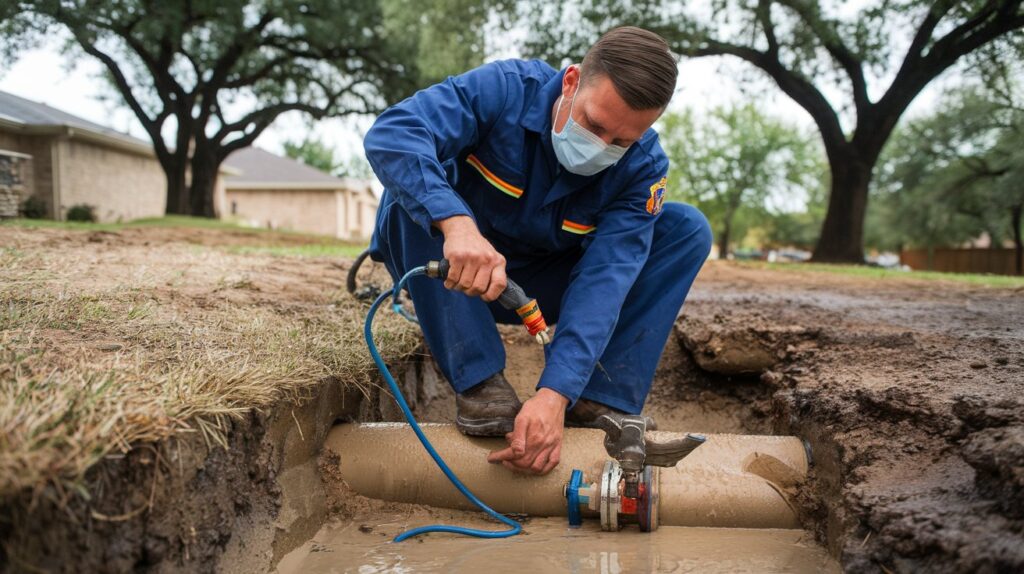Plumbing issues under your foundation may not be visible, but they can quietly cause major trouble. So, how does a plumber approach slab leaks, especially in a region like Dallas where shifting soil is part of daily life? It starts with understanding the ground beneath your home.
Understanding the Location’s Soil Profile
A plumber in Dallas often begins by considering the soil type. Much of the region is built on expansive clay, a soil that naturally swells when wet and contracts when dry. This constant movement applies pressure on home foundations and the plumbing lines underneath. Rainy seasons bring saturation, while long, dry stretches cause shrinking and cracks. Gradually, these cycles can shift or fracture the pipes embedded in the concrete slab. Homes sitting on this type of soil are more prone to movement-related leaks, especially when not designed to manage such stress.
Signs of Slab Leaks in Dallas Homes
In many homes, the signs are subtle and often mistaken for other issues. You might notice a sudden increase in your water bill or feel a warm patch on the floor where a hot water pipe is leaking. In some cases, cracks appear in the flooring or walls, especially common in older homes where ground movement has already taken its toll. Damp carpeting or the sound of running water when taps are off can also be red flags. In homes built with minimal crawl space or none at all, these symptoms become key indicators that something is happening beneath the surface.
Diagnostic Tools Used by Dallas Plumbers
Identifying a slab leak typically starts with an evaluation of the home’s plumbing system and signs of water loss. In Dallas, where soil conditions often affect underground lines, plumbers rely on both surface clues and inspection methods to determine the likely source. This might involve checking water pressure stability, reviewing usage patterns, or inspecting accessible sections of the plumbing system. The goal is to confirm whether the issue originates beneath the slab before deciding on the next steps.
Location-Based Repair Considerations
In many Dallas homes, especially those built on concrete slabs in areas prone to soil movement, local plumbers are equipped to handle everything from detection to repair without extensive disruption. They offer services such as slab tunneling, rerouting lines, or spot repairs beneath flooring, all tailored to the layout and permitting needs of the specific property. Whether it’s a home in a tight urban block or a sprawling lot, the repair process is adjusted to minimize impact while resolving the leak efficiently.
Preventive Measures That Work in Dallas Climate
In Dallas, the shifting soil composition caused by changing weather makes homes more susceptible to foundation movement and related plumbing issues. Conditions such as prolonged dry spells or inconsistent watering near the foundation can place added stress on underground pipes. While no system can completely prevent soil-related problems, seasonal plumbing checkups can help identify early signs of trouble. Many homeowners schedule inspections before summer or winter to check for changes in water pressure, leaks, or surface cracks.
What Dallas Homeowners Should Keep in Mind
Slab leaks are a serious concern, especially in areas like Dallas, where soil movement is a part of the environment. Knowing how to spot early signs and work with Workman Plumbing someone familiar with local conditions can help protect your home from unnecessary damage. A knowledgeable plumber in Dallas understands how to navigate these unique challenges starting from detection to repair and can offer practical advice tailored to your specific location. Keeping an eye on foundation health and scheduling timely inspections are smart steps for any homeowner dealing with shifting soil underfoot.

